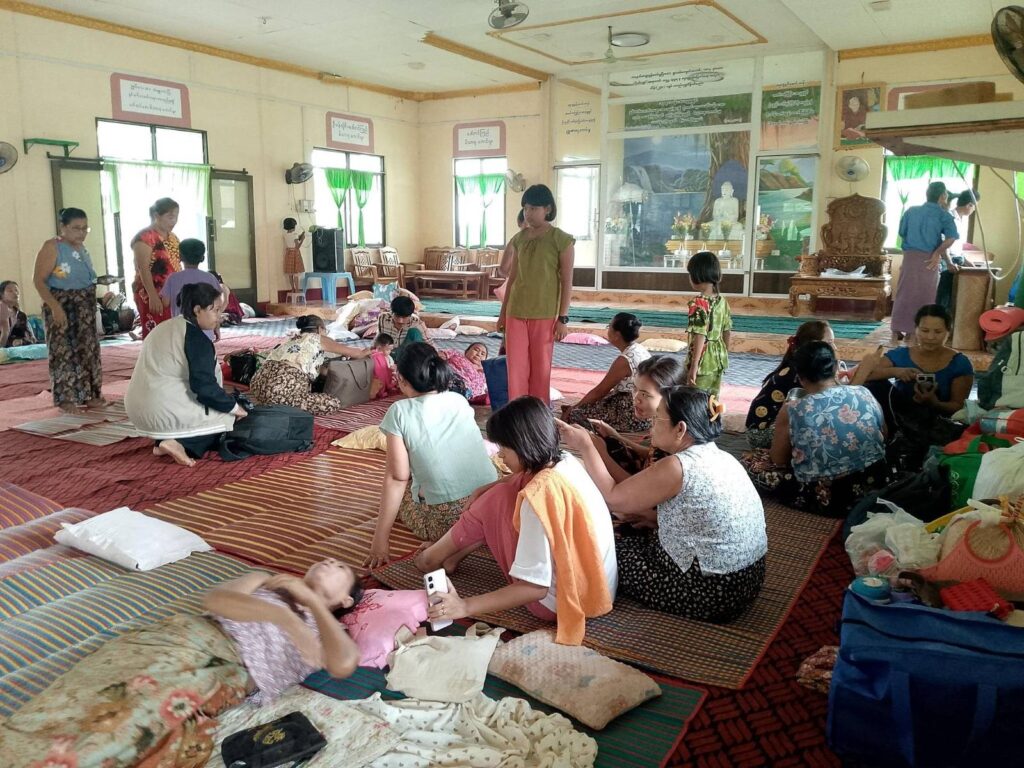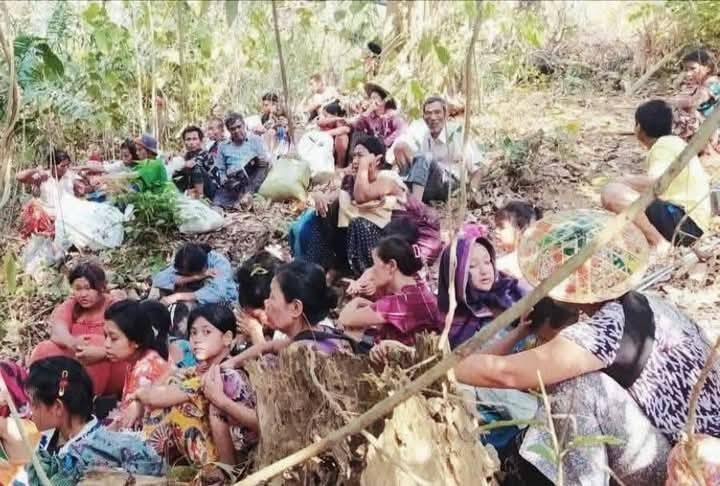Thousands Trapped in Kawkareik as Junta Escalates Attacks Amid Ongoing Clashes and Blockades
April 22, 2025
Thousands of civilians remain trapped in Kawkareik Township as fierce fighting between junta forces and resistance groups continues for over a week. Junta troops have sealed off all entry and exit points, leaving residents without safe passage, while relentless airstrikes, drone attacks, and artillery shelling have created a dire humanitarian crisis.
According to local residents and human rights monitors, the clashes intensified following joint resistance offensives targeting junta camps along the Kawkareik-Kyone Doe highway starting April 14. As of April 21, heavy fighting persists, especially near Kawkareik’s northern and western outskirts. Locals report that junta forces have prohibited residents from fleeing and are actively blocking humanitarian routes.
“This has been going on for more than a week. We’re running out of food and water. Some families have taken refuge in bomb shelters and underground bunkers, but children and the elderly are in desperate need of food and medicine,” said one resident who remains trapped in the town.
Humanitarian groups estimate that more than 7,500 people have fled Kawkareik Township in recent days, but thousands more are still inside the town, unable to escape. Many report living in fear, unsure whether they will die of hunger or be caught in the next round of fighting. Religious and community leaders in the town have attempted to negotiate humanitarian corridors with the junta, but those talks appear to have stalled.
“People here are surviving on whatever dry food and water they can find. Junta troops won’t let anyone leave. Goods can’t come in either. It’s a suffocating blockade,” said another trapped resident. “It feels like we’re waiting to die—either from bombs or starvation.”
The situation is particularly severe given the junta’s ongoing indiscriminate attacks across southeastern Burma. Recent airstrikes in Kawkareik Township, Bilin Township, and Dawei District—including direct bombings on monasteries, schools, and civilian homes—have killed and injured scores of people. Just days ago, an airstrike on a monastery in Minn Saw village, Bilin Township, killed a 10-year-old novice monk and two women, injuring eight others.

Despite the humanitarian catastrophe, cross-border assistance remains severely limited. The eastern Thai-Burma border remains largely closed, making it nearly impossible for vital supplies, like food, medical kits, tarpaulins, and baby formula, to reach displaced populations. The suspension of U.S. cross-border aid following the Executive Order has worsened the crisis, cutting off a crucial support line for local ethnic service providers and humanitarian responders.
Humanitarian workers estimate that at least 42 villages in Kawkareik Township alone have been displaced, pushing the total number of newly displaced persons to nearly 100,000 in Karen State and surrounding areas. Needs for food, medicine, and emergency shelter have surged, but international response remains alarmingly absent.
“We need international humanitarian organizations to step in and help—urgently,” said a local aid volunteer. “The junta has made it impossible for people to survive. No one is safe, and no one is getting the help they need.”




















































